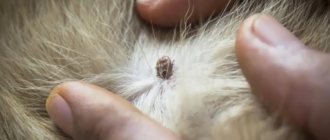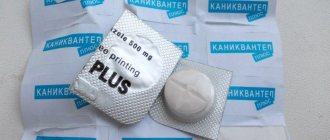Many breeders of the purring brethren, when creating a menu for their pets, are concerned about the question of whether the cat can fish. At the same time, the opinion can be diametrically opposite - from “in no case” to “definitely, as often as possible.” How useful this product is is of concern to both those who pamper their pets with their own caught fish, and those who buy overseas delicacies in the supermarket. To understand all the nuances of the presence of fish dishes in a cat’s diet, you should know which fish, in terms of species and culinary characteristics, is most suitable for purrs, and in what quantity they need it.
What are the benefits of fish for cats?
There are many reasons why you should feed your cat fish. The use of this product quickly saturates the body, provides it with unique protein and amino acids, including omega-6 and omega-3 fatty acids. The combination of these beneficial qualities has a very beneficial effect on the state of the cat’s cardiovascular and musculoskeletal systems. The presence of omega fatty acids in fish improves the condition of the reproductive system of cats. The following types of fish are considered the most useful :
- Salmon
- Salmon
- Tuna
- Trout
- Mackerel
- Sardine
- Herring
© shutterstock
Many owners argue that the incredible amount of fish in their cat’s bowl is based not only on the proven usefulness of their composition, but also on established tradition.
Cats have always been considered true admirers of fish of all kinds. But despite the seemingly obvious benefits of fish, its effect on the cat’s body can also be unfavorable.
Natural menu for cats for every day
Each cat requires its own personal approach based on its individual characteristics. Therefore, the owner can change the menu a little, adapting to the pet. For the full functioning of the body of an adult cat, two properly balanced meals a day are enough.
Morning
: upon waking up, the cat will happily eat something not very heavy. This could be cottage cheese with yolk, yogurt with cereals, or liquid milk porridge.
For a cat's morning meal, you can't find anything better!
Dinner
: fermented baked milk or fortified treats from a pet store are suitable as feeding.
Evening
: Before going to bed, your cat needs to have a good meal. Meat porridge or meat with added vegetables are suitable for this. Alternatively, you can simply give boiled chopped meat.
A few days ahead
Cat food can be prepared several days ahead and placed in the refrigerator for storage. This is very convenient if you work and return home late. Upon returning home, you just need to get the cat food, warm it up and feed your pet
How fish in the diet can harm a cat
Opponents of the claim that eating fish is good for cats cite as evidence of their correctness many cases of deterioration in the health of cats due to the consumption of large amounts of fish. The composition of such a product, which should bring only benefits, can, if not eaten correctly, cause many diseases. For example, easily digestible protein can provoke an allergic reaction, and a high content of minerals can cause changes in the cat’s urinary system .
The most common disease that occurs if a cat is fed a large amount of fish daily is urolithiasis - urolithiasis. Its development is caused by the high content of magnesium and phosphorus in fish; these microelements lay the foundation for future stones. Mineral salts complete this process, causing damage to the kidneys and urinary tract. At the same time, it was revealed that not only castrated cats are susceptible to urolithiasis, but also all adult males. There is no exception in cases of detection of ICD and cats that systematically bear offspring.
If the owner focuses on feeding fish products, then such a diet will eventually lead to problems associated with insufficient blood clotting. Why this happens is not difficult to understand, given that fish is not one of the foods that promote the synthesis of vitamin K, which is responsible for the coagulation process, in the cat’s body.
Why is it dangerous?
The composition of the fish depends on the state of its habitat. Individuals raised on farms contain hormones and antibiotics, while wild varieties accumulate chemicals and metal salts. Constantly feeding cats fish provokes an increased concentration of minerals and harmful components in the animal’s body, for example:
If an animal eats such a product too often, then there will be an excess of phosphorus in its body, which will affect the condition of the kidneys.
- Excess phosphorus, deposited in the kidneys, provokes urolithiasis.
- Histamine in protein, accumulating, causes allergic manifestations in the form of itching, dandruff, and hair loss.
- Excess fatty acids contribute to inflammation of adipose tissue.
- Excess iodine disrupts the functioning of the thyroid gland.
- The trimethylamine oxide component interferes with the absorption of iron, causing anemia.
- Vitamin K is poorly synthesized in the body.
It is contraindicated to give raw fish to cats, as it serves as a source of parasitic infestation. Accidentally leaving a bone can damage the mucous membranes of the pet’s mouth, pharynx and gastrointestinal tract. An excess of fatty pulp in the diet or a monotonous diet, for example, when an animal is fed exclusively caviar, milk, or heads, can lead to indigestion. Fish is prohibited for castrated and sterilized cats due to impaired metabolism.
Is it possible to give cats raw fish?
Most veterinarians do not recommend offering raw fish products to cats. The main danger with this option of consuming fish products is the helminth parasite that lives in fish. Opisthorchiasis caused by parasites can lead to damage to the gallbladder, liver, and stomach. If not treated promptly, this disease can cause the death of your pet.
© shutterstock
Is it possible to feed cats sea fish without heat treatment?
The question of whether raw sea fish can be given to cats is controversial among cat breeders. It is believed that only river fish are infected with parasites, but in fact, sea fish are no exception. Fish that live in the sea are 25% less affected by helminths than river fish, but their consumption without cooking is not safe.
When feeding cats with fish caught at sea, it should be taken into account that the following species are in the lead in terms of the degree of infection with worms::
- herring
- mackerel
- blue whiting
- sprat
- bull
- anchovy
These fish varieties are subject to particularly stringent heat treatment requirements.
Parasites are practically not found in hake, pike perch, whiting and pelengas. You can occasionally give small pieces of raw fish of these types, if the product has previously been seriously frozen.
© shutterstock
What other fish are banned?
Under no circumstances should cats be given smoked or salted fish. For animals with kidney problems, such nutrition begins to cause harm very quickly, and for completely healthy animals - slowly, but quite surely.
As for smoked fish, it has a destructive effect on the animal’s liver, and its consumption also leads to irritation of the gastric mucosa.
Found a violation? Report content
Is freshwater fish safe for cats?
Most cat owners agree that it is unsafe to give cats fish caught in freshwater sources without prior heat treatment. Research has revealed that 95% of river fish are infected with helminths. The following types of freshwater fish contain the most parasites that lead to diseases such as opistochoriasis :
- Pike
- Roach
- crucian carp
- Carp
- Carp
- Bream
In order to be sure that the infected fish will not harm your pet, it is necessary to subject the product to one of the temperature options - either freeze it at 25 degrees negative temperature or boil it with the obligatory boiling stage.
If a method of preventing helminthiasis is used in the form of freezing the product, then storing the semi-finished product should take at least two weeks in the freezer. An effective way to prevent the introduction of worms into a cat's body is to thoroughly boil food. When boiled in a liquid that reaches 100 degrees, all helminths die. After the water boils, the fish should be cooked for at least 15 - 20 minutes. Before starting the cooking process, large fish should be cut into small portions.
What kind of water to give your cat
The health and life expectancy of a cat largely depends on the quality of drinking water. The best option for an animal is soft natural water from drinking sources. This water contains beneficial microelements for the body.
Alternatively, you can give your cat filtered or frozen water. Do not give your domestic cat water from the tap. As a rule, it is not of good quality. In addition, it may contain impurities that are dangerous to the cat’s body.
Preparation
The cat is given drinking water in a clean ceramic or glass bowl. The container must be washed daily.
Temperature
Do not give your pet too cold or hot water. The liquid should be at room temperature.
Supplements
Some owners add various additives to their cat’s water to improve the taste or quality of the drinking composition.
Water additives:
- fluorine, iodine (quality improves);
- tuna juice, anchovies (cats are attracted by the smell);
- nettle infusion (for medicinal purposes);
- special nutritional drink for cats.
Is fish good for castrated animals?
Many breeders believe that castrated cats should not be given fish. The reason for this is the opinion that it is castrated animals that are most susceptible to urolithiasis. In fact, post-neutered male cats are just as likely to develop urolithiasis from excessive fish consumption as unsterilized pets.
© shutterstock
You should not give castrated cats, like unoperated male cats, fish in large quantities. This can reduce the content of vitamins B1 and E in the body, leading to the development of anemia and damage to the thyroid gland. The reasons for such consequences are the enzyme thiaminase and iodine contained in fish, which is especially abundant in marine fish species. The feline thyroid gland is not able to absorb this amount of iodine, and this can lead to the development of goiter.
Food for sterilized cats and neutered cats
Sterilized cat suffering from obesity due to malnutrition
After sterilization, a cat loses interest in animals of the opposite sex and is replaced by a lost interest in food. Therefore, very often sterilized animals become obese.
, so try not to overfeed your pet.
If you decide to feed your pet homemade food yourself, then remember that the basis of the diet, just like with ordinary cats, should be meat food. Suitable meat products include beef, chicken, chicken hearts, livers or gizzards.
In this case, it is better to give up fish completely.
In addition, sterilized cats should be given cereals, vegetables and various fermented milk products. But it is better to avoid fish completely, since fish contains phosphorus and magnesium, which are harmful to sterilized animals.
Thus, the diet of sterilized and unsterilized cats is similar
. The only difference will be the fish. Veterinarians advise buying special vitamins for sterilized pets. They contain all the necessary microelements for such animals.
Should you include fish in your cat's diet or should you avoid it completely?
Having learned how many adverse effects can occur when cats eat fish, many owners come to the conclusion that cats should not eat fish at all. You should not rush to such a decision; you should adhere to the “golden mean” principle in this matter. Both excessive consumption of fish and complete abstinence from it can have negative consequences. The animal's diet should be varied and based on the principle of maintaining a proportional ratio of products.
Cats should eat fish once a week, the total portion should not exceed 70 g. Preferably, it should be halibut or hake, cod and salmon are acceptable. When including fish in a cat's diet, the following rules should be followed :
- The fish should be well cooked, and not just scalded with boiling water
- All bones must be carefully removed
- Fish is included in the diet no more than once every 7-10 days
It is worth limiting or completely eliminating fish from the diet of pregnant cats, as its consumption can negatively affect the development of the fetus. Kittens can be given fish no more than once a week, at half the rate of an adult animal, that is, 25–35 g.
The need for fish for cats
Can cats fish and is it necessary to include this delicacy in your pet’s diet? Veterinary experts believe that the menu for four-legged friends can include boiled marine fish. Before cooking the product, you need to separate all the bones to avoid injury to the animal’s larynx and esophagus.
Can a neutered cat eat fish?
How often can you wash a cat - how many times a month and examples of when not
Why can't cats fish? It is believed that after castration the risk of developing bladder stones increases. Poor nutrition can contribute to the development of a dangerous pathology. However, some veterinary experts believe that it is still possible to occasionally give fish delicacies in small quantities to pets who have undergone the castration procedure.
Note! The presence of fish in the diet of animals does not in any way affect the risk of urolithiasis, despite the fact that the product contains a large percentage of phosphorus, which creates conditions for the formation of struvite in the bladder area.
Fish for a sterilized cat
Why can't cats be fed fish? Cats that have been neutered should not eat this product frequently. Scaly ones can only be in a pet’s diet as a rare treat. Although, if possible, it is better to avoid such a product.
Important! Under no circumstances should you give raw products, as this risks, at a minimum, infection with helminthiasis. If you want to give your cat a fish, you should give preference to marine varieties that will do more good than harm. All dice must be pre-selected.
Is it possible to give canned food?
Super-premium canned food, which is prepared for fluffy purrs, does not contain harmful substances. Among the main ingredients of the products, there are a large number of natural elements, minerals and vitamins that can help restore the health of the animal and compensate for their deficiency in the body. However, when choosing canned food, you should pay attention to quality. Of course, not every owner has the opportunity to purchase ready-made holistic food, but a super-premium diet is available to the majority of consumers.
Important! Fish, like milk, should rarely be present in the diet of animals.
What kind of fish to give: raw or boiled
It is important to pay attention not only to the type of fish, but also to the method of its preparation. It is unacceptable to give your pets whole fish raw. It is worth considering that not every part is digested by the four-legged friend’s body in the same way. In addition, raw fish can cause the development of helminthiasis. Cat owners who introduce raw food into their cat's daily diet can cause a deficiency of vitamin B1 in the body. If a cat eats raw fish systematically, its health will undoubtedly worsen.
Note! Veterinarians advise sometimes pampering your pets with raw cod fillet, which does not contain parasites.
Can cats eat fish and in what form is it best to give it? It is best to give your pets a small amount of boiled fish delicacy. Before cooking fish, it is necessary to clean it of scales and bones so that the animal does not injure the area of the larynx and esophagus. The broth is not added any salt during the cooking process. This will not affect the taste of the fish delicacy in any way.
Under no circumstances should you give in to the temptation to treat your animal to smoked or salted fish. The high percentage of salt contained in products increases the likelihood of the formation of stones in the bladder. And carcinogens contained in smoked fish can negatively affect the condition of the liver.
Fish delicacy should be given only a couple of times a week
Is it possible to feed fish to a kitten?
Veterinarians allow the opportunity to pamper a kitten with boiled fish fillet a couple of times a month. When going shopping for a product, you should pay attention to the quality and freshness of the product. Fresh produce will emit a pleasant aroma. If you press down on the loin with your finger, it will not fall off on the sides, but will retain its shape.
If desired, a kitten, like an adult cat, can be given a piece of defrosted fish fillet, which does not have bones.
Should I add salt to my cat's food?
Salt, as a rule, is not added to natural foods. But there is one “but”. The fact is that most of the salt is contained in the blood, and butchers drain the blood - and very little of it remains in the meat. That is, the meat loses its natural saltiness. Not to zero, but not reaching the norm either. How to solve this problem?
You can give your cat organs that represent a blood depot: the liver and spleen. Blood clots are also found in hearts. Heart can be given in unlimited quantities, and liver and spleen can make up up to 5% of the diet, because in large quantities cause side effects, in particular diarrhea.
If the cat does not consume these organs, blood can be purchased separately. Some butchers sell it. If you buy liquid blood, it must be frozen for at least three days before use, just like meat. For convenience, the blood can be poured into ice cube trays. And then add one cube at a time to the plate along with food.
Harm from fatty foods
Small wild cats prefer to hunt only small animals:
- rodents;
- birds;
- bats;
- hedgehogs;
- rabbits.
There is practically no adipose tissue in the muscles of game, so during centuries of changes, the cat’s body has not adapted to digesting heavy food.
Effect on the gastrointestinal tract.
The digestive system of domestic pets is no different from their wild counterparts, which is why they are not able to digest large amounts of animal fat at a time.
It is difficult for the pancreas to produce the required amount of active enzymes to break down the fat eaten. As a result, fat will not be absorbed.
The product will continue to pass through the gastrointestinal tract, causing pain and discomfort to the cat. This causes harm to the body, since small colonies of rotting bacteria are present in the digestive organs. A decaying piece of lard will poison the animal.
The cat has eaten salty food - what should I do?
And finally, let’s answer the question: is it scary if a cat eats salty food? For example, it could be salted fish or meat, sausage, canned food, salted cheese and other products.
There is no need to worry if you eat a small amount. A single intake of salty food will lead, perhaps, to the fact that the cat will drink heavily. Therefore, make sure that fresh, high-quality water is available.
However, it is also possible for a cat to be poisoned by salt. Rare cases of poisoning can even lead to death. However, such an overdose of salt in cats in domestic conditions is unlikely. You don’t leave a large amount of salted fish in the open in the kitchen and you won’t throw spoons of salt into your cat’s mouth. The lethal dose of sodium chloride for dogs and cats is on average 3-4 grams per 1 kilogram of weight. That is, for example, a cat weighing 5 kg needs to eat 15 grams of salt, which is 2-3 teaspoons.
However, you should still know the symptoms of cat salt poisoning. Among them are:
- apathy;
- loss of appetite;
- greedy drinking of water;
- cyanosis of mucous membranes;
- breathing problems;
- paralysis;
- convulsions.
When it comes to a small amount of salt, nothing bad will happen. There are even cases where cats drank sea water and nothing happened to them. So there is no need to worry if your cat ate a piece of salted fish or ate some Greek salad with feta. The cat's body has high compensation capabilities.
At the same time, you shouldn’t specifically feed your cat salty foods either. We are talking about isolated cases when an animal steals from the table. Yes, there are cats who eat salty canned human fish their entire lives and are fine. But this is not thanks to, but in spite of. In this matter, as in everything, moderation must be observed.
Junk food for cats
The cat is a predator; its natural diet is quite meager by human standards. Common food for cats are mice, birds and insects. What she caught, she ate. It’s strange to imagine a mustachioed predator reasoning: “Yesterday there was a sparrow, today I’ll look for a mouse, and tomorrow there will be a dove for dinner.” A cat does not need culinary delights. To maintain health, she requires a balanced diet, sufficient amounts of proteins, fats, carbohydrates, vitamins and minerals. This is what a responsible owner should first remember. Gastronomic experiments are not for cats.
Contraindications
There are a number of diseases and pathological conditions against which the tabby is strictly forbidden to feed on lard. Owners should not give their pets even small pieces of a fatty product in a number of cases:
- The regular diet consists of high quality professional feed . The production diet includes all the necessary nutrients for the animal’s body: vitamins, fatty and organic acids, mineral components. The content of proteins, carbohydrates and fats is strictly balanced to maintain energy balance in the cat’s body and support the functioning of internal organs. If lard and other human products are given in parallel with premium food, the risk of developing renal failure and acute pancreatitis increases.
- Sterilization of a pet . In the absence of organs of the reproductive system, hormonal imbalance and metabolic disorders occur. As a result, an additional load is created on the organs of the excretory system: kidneys, bladder, rectum and large intestine. In order not to harm their work, giving lard is contraindicated.
- Chronic diseases . This category includes pancreatitis, kidney and liver failure, and pathologies of the digestive system. The gastrointestinal tract will not be able to process the heavy product, which can worsen the pet’s condition and increase the risk of death.
Similar prohibitions apply not only to lard, but also to other by-products from the meat plant. Skins and cartilage should not be given to cats.
Is it necessary to salt the cat’s food, add seasonings to enhance the taste, or reheat the food?
No, no and NO. Food should be at room temperature or slightly higher, salt should not be added (the cat has enough of the salts contained in the food), and seasonings should be a direct cause of disorders and chronic diseases of the digestive tract.
To the delight of gastroenterologists, man has elevated food intake to a cult. Cats are much more intelligent than us in this regard - they eat to live, and do not live to eat. There is no need to impose human vices on these beautiful creatures.
Join us in social networks:











